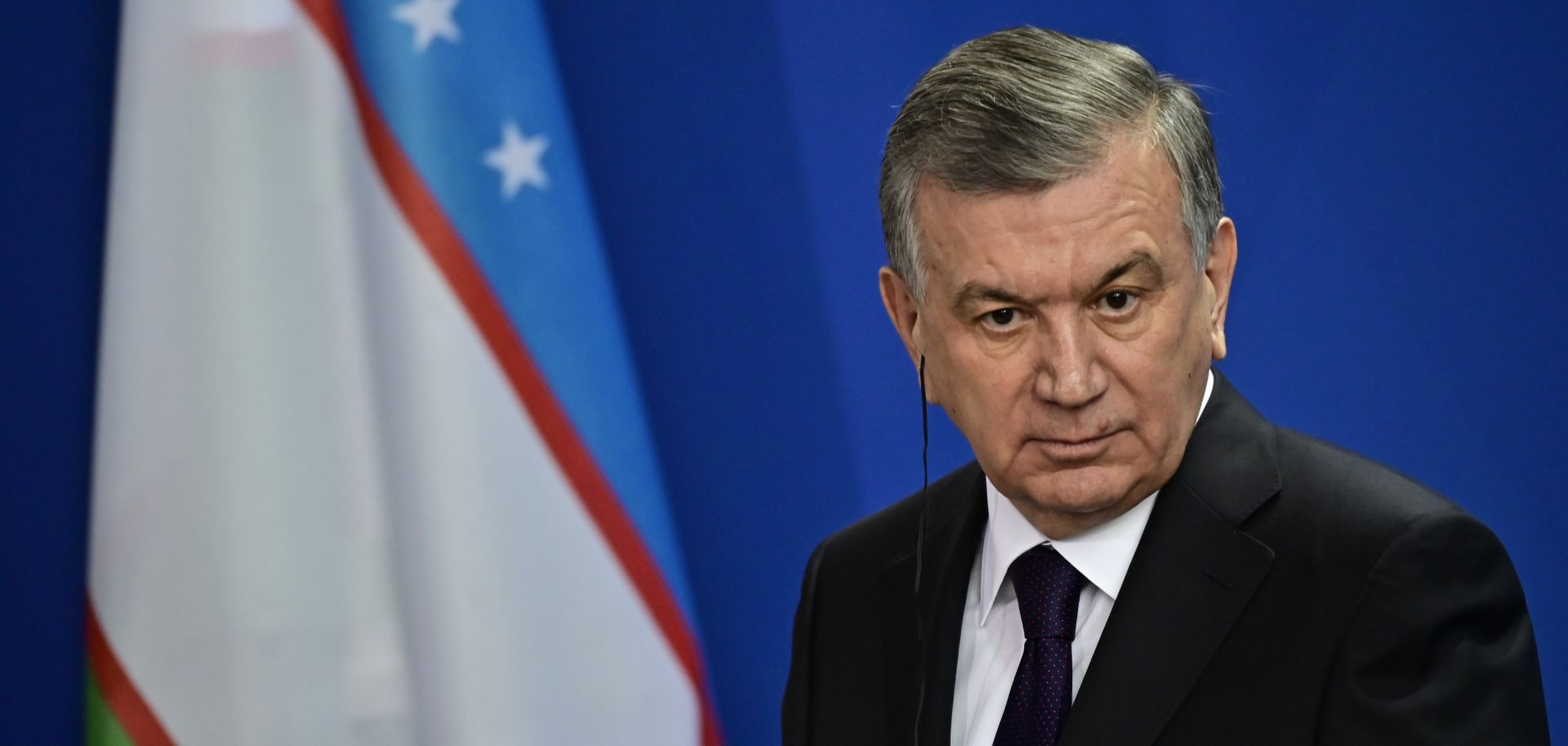ASSESSMENTS
Uzbekistan Comes in From the Cold
Nov 5, 2019 | 10:30 GMT

Uzbek President Shavkat Mirziyoyev listens during a joint press conference with German Chancellor Angela Merkel prior to a meeting on Jan. 21, 2019, in Berlin. Tashkent's engagement with the world presents both good and bad for Uzbekistan.
(TOBIAS SCHWARZ/AFP via Getty Images)
Highlights
- Under President Shavkat Mirziyoyev, Uzbekistan is abandoning its traditional isolationism and becoming an increasingly important player in the dynamic relationship among Russia, China and, to a lesser degree, the U.S.
- Uzbekistan will be more open to increasing economic and security ties with Russia, even as it makes parallel overtures to China and Western countries to diversify its foreign policy.
- Tashkent's transformation will play an important role in fostering greater economic and security cooperation within Central Asia.
Subscribe Now
SubscribeAlready have an account?
